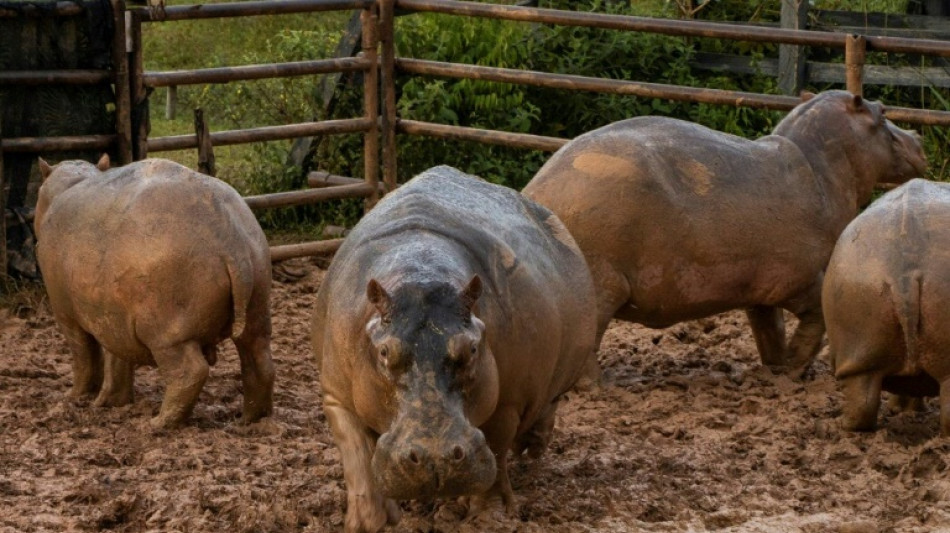
-
 Inothewayurthinkin denies Mullins, Galopin Des Champs Gold Cup hat-trick
Inothewayurthinkin denies Mullins, Galopin Des Champs Gold Cup hat-trick
-
Inothewayurthinkin beats Galopin Des Champs to win Cheltenham Gold Cup

-
 Sebastian Coe criticises IOC election process
Sebastian Coe criticises IOC election process
-
Israel PM, security agency fight it out in public

-
 Courtois returns from Belgium exile for Nations League duty
Courtois returns from Belgium exile for Nations League duty
-
Dupont absence 'changes nothing' for Alldritt before France's Six Nations decider

-
 Russia 'committed crimes against humanity' in Ukraine: UN probe
Russia 'committed crimes against humanity' in Ukraine: UN probe
-
Trump hails 'productive' truce talks with Russia, urges Putin to spare Ukrainians
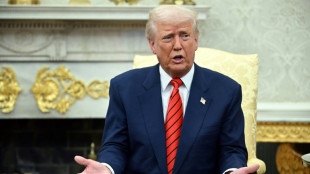
-
 Hundreds of Olympians call on IOC candidates to make climate top priority
Hundreds of Olympians call on IOC candidates to make climate top priority
-
Florence cathedral closed as Italy's Tuscany on flood alert
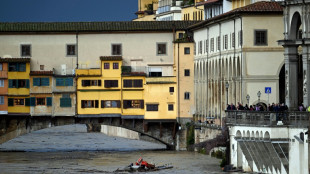
-
 Mark Carney: Canada's new PM charted unusual path to power
Mark Carney: Canada's new PM charted unusual path to power
-
Arteta 'proud' of Lewis-Skelly's England call-up

-
 Mark Carney sworn in as Canada PM
Mark Carney sworn in as Canada PM
-
US govt shutdown in balance after top Democrat avoids fight
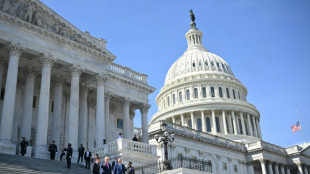
-
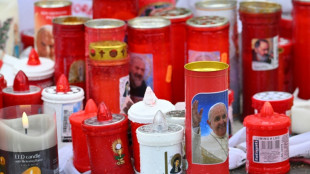 Pope marks month in hospital as footballers send messages
Pope marks month in hospital as footballers send messages
-
Crew launch to ISS paves way for stranded astronauts' homecoming

-
 Hamas says ready to free Israeli-US hostage, four bodies
Hamas says ready to free Israeli-US hostage, four bodies
-
Wainwright says Wales want to send Sherratt out on Six Nations high

-
 Just looking at images of nature can relieve pain, study finds
Just looking at images of nature can relieve pain, study finds
-
Guardiola relishing 'big fight' for Champions League qualification

-
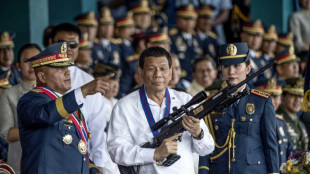 Duterte follows ICC hearing over drug war case via videolink
Duterte follows ICC hearing over drug war case via videolink
-
Mark Carney to be sworn in as Canada PM

-
 Chelsea can be flexible, says Maresca
Chelsea can be flexible, says Maresca
-
UN migration agency laying off around 20% of HQ staff amid US aid cuts: sources
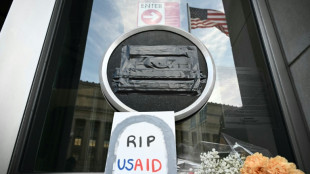
-
 Pique denies Rubiales kickbacks in Spanish Super Cup move to Saudi
Pique denies Rubiales kickbacks in Spanish Super Cup move to Saudi
-
Tuchel hopes to bring Premier League power to England reign

-
 UN chief promises to do "everything" to avoid food cuts to Rohingyas in Bangladesh
UN chief promises to do "everything" to avoid food cuts to Rohingyas in Bangladesh
-
UniCredit gets ECB nod on Commerzbank stake, but delays merger decision

-
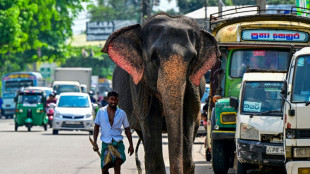 Sri Lanka adjusts train timings to tackle elephant deaths
Sri Lanka adjusts train timings to tackle elephant deaths
-
Scotland out to 'disrupt' France's Six Nations title hopes, says Russell

-
 BMW expects big hit from tariffs after 2024 profits plunge
BMW expects big hit from tariffs after 2024 profits plunge
-
Bayern's Kim sidelined for 'several weeks' with injury

-
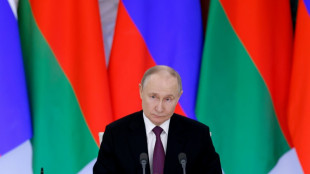 Kremlin says Putin sent 'additional' signals to Trump on ceasefire
Kremlin says Putin sent 'additional' signals to Trump on ceasefire
-
Funding cuts force WFP to stop food aid to one million in Myanmar

-
 Thai football body to sue former chief over finances
Thai football body to sue former chief over finances
-
Spain call up Asencio for Nations League quarters

-
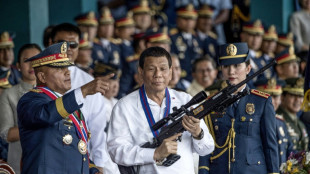 Duterte set to face ICC judges in drug war case
Duterte set to face ICC judges in drug war case
-
Gold tops $3,000 for first time on Trump tariff threats

-
 Canada's Carney to be sworn in as new PM
Canada's Carney to be sworn in as new PM
-
Brignone on verge of World Cup glory with La Thuile super-G triumph

-
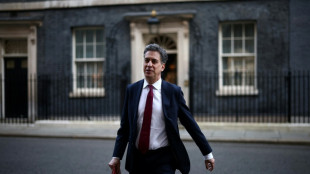 UK energy minister heads to China to talk climate
UK energy minister heads to China to talk climate
-
Fernandes hits back at Ratcliffe over 'overpaid' jibe

-
 Liverpool's Alexander-Arnold to miss League Cup final in injury blow
Liverpool's Alexander-Arnold to miss League Cup final in injury blow
-
'God never sleeps': Philippines opponents of Duterte's drug war

-
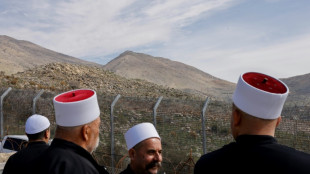 Syrian Druze cross armistice line for pilgrimage to Israel
Syrian Druze cross armistice line for pilgrimage to Israel
-
Thousands pay to catch glimpse of Ohtani practise in Tokyo

-
 French finance minister calls trade war 'idiotic', plans US trip
French finance minister calls trade war 'idiotic', plans US trip
-
UN chief in Rohingya refugee camp solidarity visit

-
 Rashford, Henderson recalled in Tuchel's first England squad
Rashford, Henderson recalled in Tuchel's first England squad
-
WFP says funding shortfall forces it to cut food aid to 1 mn people in Myanmar


End of the road in Colombia for Escobar's 'cocaine' hippos?
More than 100 African hippos descended from fewer than a handful imported as exotic pets by drug lord Pablo Escobar, face an uncertain future in Colombia.
After the government added Escobar's so-called "cocaine" hippos Friday to a list of "introduced, invasive species," experts say killing them may be the only viable option.
From the few individuals once housed at Escobar's Hacienda Napoles estate, the hippos' numbers have ballooned, with 130 now roaming free north of Bogota around the Magdalena River.
Officials say the grazing giants, endemic to sub-Saharan Africa, threaten local wildlife and humans living along the river, whom they have already come into conflict with.
Attempts have been made to sterilize the animals, which can weigh as much as 1.8 tons, but doing so is expensive and difficult.
"Sacrifice (culling) remains on the table," said David Echeverri, head of the Cornare state environmental agency in charge of the sterilization effort.
"It is a necessary option... it could be the only way to stop the problem from getting worse," he told AFP.
Escobar, once head of the deadly Medellin Cartel, became one of the richest men on the planet, according to Forbes, thanks to the drug trafficking empire he built.
With his wealth he built a menagerie, acquiring hippos, flamingos, giraffes, zebras and kangaroos for his ranch.
After he was shot dead by police in 1993, all but the hippopotamuses were sold to zoos.
The semi-aquatic ungulates were left to roam Escobar's estate and continued breeding.
They are now believed to be the largest so-called "bloat" of hippopotamuses outside of Africa.
- 'Complex, expensive and dangerous' -
The creatures have long been a headache for authorities faced with a vocal anti-culling campaign.
Last Friday, the government officially declared the hippos an invasive species and announced it had a plan to "manage" their population, which studies have suggested could quadruple in 10 years.
Although the details of the plan have not been revealed, former environment minister Manuel Rodriguez has urged the government to use any means, including opening a hunt on the animals.
"Obviously there are animal activists opposed to this, but what is the alternative?" he said.
To date, Cornare has managed to surgically sterilize 11 hippos and dart another 40 with contraceptives.
The effort has cost more than $100,000, but has failed to stop hippo numbers from swelling.
"Everything with hippos is complex, expensive and dangerous," Echeverri told AFP.
- Potential 'tragedy' -
For Rodriguez, the animals pose a major threat to fishermen and other river-side inhabitants.
Last year, Cornare recorded two hippo attacks on people, neither fatal.
In Africa, hippos kill hundreds of people every year.
"We could face a tragedy," Rodriguez warned.
Also threatened by the hippos are the manatee -- large marine mammals that make the Magdalena River their home -- and a variety of native fish.
Earlier this year, activists with the backing of green parliamentary candidate Luis Domingo Gomez, proposed creating a sanctuary for the hippos with a mix of public and private funds.
But experts reject the proposal as costly and no less harmful to the local ecosystem.
"Are we going to maintain a sanctuary for hippos that attack the manatee?" asked Rodriguez.
Biologist Nataly Castelblanco, an expert on manatees, said local animals should take precedence.
"Native species have conservation priority over invasive species," she wrote on Twitter.
R.Adler--BTB


